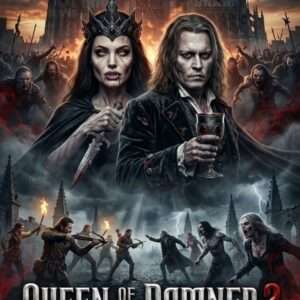Game of Thrones, the epic television series based on George R. R. Martin’s book series A Song of Ice and Fire, captivated audiences across the globe from its debut on HBO in 2011 to its highly debated finale in 2019. The series redefined what it means to be a modern television show, blending fantasy, politics, and human drama into a masterpiece that continues to reverberate in popular culture. This article will explore the core elements of Game of Thrones, including its characters, plot, themes, legacy, and impact on the television landscape.

The World of Westeros
At its heart, Game of Thrones is a story about power. Set in the fictional continents of Westeros and Essos, the series weaves together multiple storylines, each focused on different families vying for control of the Iron Throne, the seat of the King of Westeros. This throne serves as the symbol of ultimate power, but as viewers soon learn, the throne and the power it represents come at a great cost.
Westeros itself is a land divided by political intrigue, religious fervor, and ancient traditions. The Seven Kingdoms are constantly at odds with each other, and the nobles who rule them are locked in a constant battle for supremacy. The show introduces viewers to numerous noble houses, including the Lannisters, Starks, Baratheons, Targaryens, and Greyjoys, each with its own ambitions, strengths, and weaknesses.
While Westeros might initially seem like a typical medieval fantasy setting, the show quickly reveals its complexity. Power in Game of Thrones is not just about armies and battles but is also rooted in strategy, deception, and moral ambiguity. It is a world where alliances shift, betrayals occur with regularity, and no character is ever truly safe. This moral complexity, alongside the deeply human motivations of the characters, sets the show apart from traditional fantasy.

Main Characters and Their Journeys
One of the most compelling aspects of Game of Thrones is its rich cast of characters. Unlike many shows that focus on one or two central protagonists, Game of Thrones is a sprawling ensemble drama, with each character playing a critical role in the overall narrative.
Eddard “Ned” Stark (Sean Bean) is one of the early focal points of the show. As the honorable patriarch of House Stark, he is initially the audience’s moral anchor, determined to maintain justice and fairness in a world that seems devoid of both. His tragic fate, however, sets the tone for the series and signals that no character is safe from the brutal realities of Westerosi politics.
Jon Snow (Kit Harington), the illegitimate son of Ned Stark, starts his journey as a member of the Night’s Watch, tasked with guarding the Wall, a massive structure that separates the Seven Kingdoms from the wild lands beyond. His arc explores themes of identity, honor, and leadership, culminating in his rise to power and his eventual betrayal.
Daenerys Targaryen (Emilia Clarke), the exiled princess of the fallen Targaryen dynasty, has one of the most remarkable transformations in the series. From an innocent girl in exile to the “Mother of Dragons,” Daenerys’s quest for the throne drives much of the plot in the later seasons. Her journey is one of self-discovery, ambition, and the complex nature of power, as she grapples with the balance between justice and tyranny.
Tyrion Lannister (Peter Dinklage), the sharp-witted, dwarf-sized son of Tywin Lannister, offers a unique perspective on power. His intelligence and keen sense of diplomacy make him one of the most formidable players in the game of thrones, despite his lack of physical stature. Tyrion’s wit, wisdom, and vulnerability make him one of the most beloved characters in the series.
Other major characters like Arya Stark (Maisie Williams), Cersei Lannister (Lena Headey), and Jaime Lannister (Nikolaj Coster-Waldau) all add depth to the series, each facing moral dilemmas and undergoing significant character development.
Themes of Power, Betrayal, and Morality
Game of Thrones is a show that frequently challenges traditional notions of good and evil. The characters in the series are neither fully virtuous nor completely wicked. In fact, many of them exist in morally gray areas, making decisions that can be seen as both right and wrong, depending on the perspective.
Power, in particular, is a central theme in Game of Thrones. The desire to rule, the consequences of holding power, and the lengths to which individuals will go to acquire and maintain it are explored in depth. For some characters, such as Cersei Lannister, power becomes an obsession, leading her to make increasingly dangerous and destructive decisions. For others, like Jon Snow, power is reluctantly assumed, often leading to sacrifices and internal conflict.
Betrayal is another recurring theme. Characters frequently deceive and betray one another, often for personal gain or to protect their families. The complex web of alliances and rivalries keeps viewers on edge, knowing that no one is ever truly trustworthy. Game of Thrones teaches the harsh reality that loyalty and honor are often secondary to survival.
The Importance of Setting and World-Building
The world-building in Game of Thrones is nothing short of extraordinary. From the cold, barren landscapes beyond the Wall to the sun-soaked streets of King’s Landing, the show brings the continents of Westeros and Essos to life in vivid detail. The use of actual locations, such as the Alcázar of Seville in Spain and the Dubrovnik Old Town in Croatia, contributes to the authenticity of the setting, while the intricate set designs, costumes, and visual effects enhance the world’s grandeur.
One of the standout features of Game of Thrones is its portrayal of battle sequences and warfare. The show’s depiction of epic battles, such as the Battle of the Bastards, is a testament to the series’ production values. These scenes are not just about spectacle; they often serve as key turning points in the narrative, with the outcome influencing the power dynamics between characters and families.

The Shocking Twists and the End of an Era
Perhaps one of the most defining features of Game of Thrones is its unpredictable nature. The show became infamous for killing off key characters unexpectedly, often in the most brutal of ways. The death of Ned Stark in the first season, for example, shocked viewers and set the stage for the unpredictable nature of the story. Subsequent seasons saw the deaths of beloved characters like Robb Stark, Joffrey Baratheon, and even major fan-favorites like Oberyn Martell and The Hound.
These shocking twists kept audiences on the edge of their seats, with every episode offering new revelations and confrontations. However, the series’ final season proved to be controversial, with many fans expressing dissatisfaction with the resolution of major storylines, particularly concerning Daenerys’s arc and the ultimate fate of the Iron Throne.
The final episode, “The Iron Throne,” sparked intense debate. Many felt that the resolution of key character arcs, including Daenerys’s descent into madness and Jon Snow’s eventual decision, was rushed and inconsistent with the slow-burn storytelling the show had previously excelled at. Despite the backlash, the finale still provided closure, albeit a controversial one.
Legacy and Cultural Impact
Despite the polarizing final season, Game of Thrones remains one of the most influential shows in television history. Its success paved the way for more high-budget, epic television series, such as Westworld, The Witcher, and His Dark Materials. The show’s exploration of complex characters, political intrigue, and moral dilemmas has influenced countless works of television, film, and literature.
Beyond its storytelling and thematic influence, Game of Thrones made a significant cultural impact. Phrases like “Winter is Coming” and “Valar Morghulis” have entered the lexicon, and characters like Tyrion Lannister, Jon Snow, and Daenerys Targaryen have become icons in the fantasy genre. The show’s ability to combine political drama with fantasy elements has inspired a generation of viewers and creators.
In conclusion, Game of Thrones stands as a monumental achievement in modern television, blending high fantasy with deeply human storytelling. Its complex characters, themes of power and betrayal, and jaw-dropping twists made it a global cultural phenomenon. While the series may be remembered for its controversial final season, its lasting impact on both the television industry and popular culture is undeniable. As the world of Westeros fades into history, Game of Thrones remains a benchmark against which all future fantasy epics will be measured.





